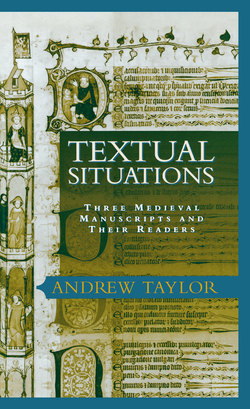Textual Situations

Реклама. ООО «ЛитРес», ИНН: 7719571260.
Оглавление
Andrew Taylor. Textual Situations
Отрывок из книги
Textual Situations
Series Editors
.....
The battle was fierce, and all were engaged. Count Roland did not hold back. He struck with his spear as long as its shaft remained, but he broke it completely by the fifteenth blow. He drew out the naked blade of Durendal, his good sword, spurred on his horse, and struck Chernuble. He cut through his helmet, where the carbuncles shone, and through his head and his hair. Cut through his eyes and his face, his shining mail hauberk, and all his body, to the trunk, and then into his saddle, which was decorated with gold, and into his horse and through its spine, without looking for the joints. He left both dead in the thick grass. Then he said, “Wretch, you did wrong to come. You will never have aid from Mohammed. Battle will never be won by such a coward.”
It is much easier to imagine these lines being delivered by a minstrel or jongleur, who could supply appropriately histrionic gestures and perhaps even go so far as to twirl a sword (as Taillefer is said to have done in one account).71 As we shall see, however, there are grounds for serious doubt about whether minstrels or jongleurs ever had much opportunity to deliver more than short fragments, while there are lines written by clerics, and even by a canon at Oseney, that have something of this brutality. If we are trying to imagine the conditions under which the poem might have been delivered more or less in its entirety, we must think in terms of someone like the chaplain Gerold, however much this may clash with the clichés of medieval culture we have inherited.
.....